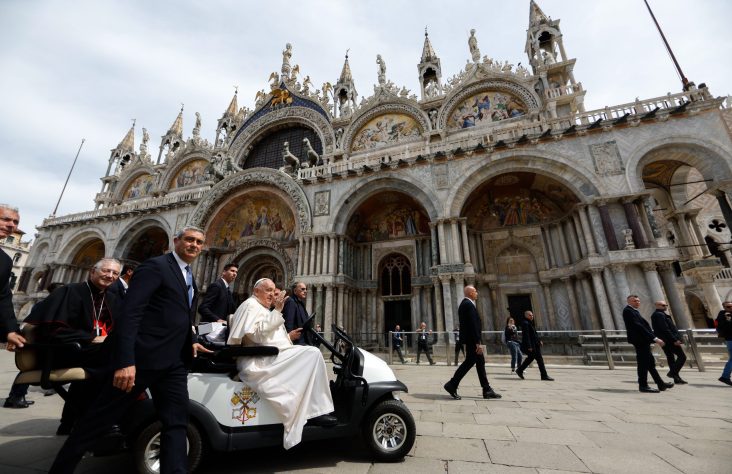February 13, 2024 // Perspective
Understanding Our Lenten Call to Conversion and Repentance
“The kingdom of God is at hand. Repent, and believe in the Gospel.”
The First Sunday of Lent is upon us, and through the readings and prayers, we dive right into richness of this season. The word “repent” can often land in various ways in a person’s soul. And yet, it is among the first words uttered by Jesus in the Gospel of Mark.
The word itself has a twofold accent. To repent could mean to turn around, but the more dominant meaning is the changing of one’s mind. The call of Jesus in the Gospel to “repent!” is eloquently elaborated by the prayers of the Mass this Sunday. In the collect prayer, we pray that, through our observance of Lent, “we may grow in understanding of the riches hidden in Christ” and pursue their effects. In the prayer over the offerings, we ask God for the right dispositions – that is, the right qualities of mind and character – to offer the Eucharistic sacrifice. The task of conversion/repentance involves seeing the world and ourselves in a new light. It involves a change of mind away from the corruption of sin and toward Christ, the Incarnate Wisdom of God.
In his audience on Ash Wednesday in 2007, Pope Benedict XVI said: “What does ‘to be converted’ actually mean? It means seeking God, moving with God, docilely following the teachings of His Son, Jesus Christ; to be converted is not a work for self-fulfillment, because the human being is not the architect of his own eternal destiny. We did not make ourselves. … Conversion consists in freely and lovingly accepting to depend in all things on God, our true Creator, to depend on love. This is not dependence but freedom.”
The work of repentance is the work of being overtaken by God – freely accepting Him into our hearts, minds, and souls, so that we might actually become free – free from the chains of sin, free from the corruption of our minds (which draws us into vice), free to live a life of love. And this begins with a turning back toward God and away from the prince of this world and his hold on us. That is to say, it begins with the renewal of the mind – as St. Paul instructs us in his Letter to the Romans: “Do not be conformed to this world, but be transformed by the renewal of your mind, that by testing you may discern what is the will of God, what is good and acceptable and perfect.”
Recognizing this reality – the need for the renewal of the mind as an essential aspect of the conversion that the season of Lent invites us into – we do well to also remember that this season has long been associated with the penitential preparation of the catechumens to enter the Church through baptism at Easter. Thus, both the baptized and not-yet-baptized enter into a journey of conversion that is, in its essence, an ecclesial experience. Lent provides an opportunity for all of us to prepare our minds and hearts anew for the grace of baptism – whether we are receiving the sacrament at Easter or renewing the grace that was given to us before. This is because conversion is not a moment; it is not a one-and-done deal. It is a continual journey and task – one that requires renewal and grace to integrate the whole of our lives.
Thus, the command to “repent,” which Christ utters in the Gospel this Sunday, excludes no one. From the most abhorrent sinner to the most faithful Catholic, all are commanded to allow the Lord to continually change and renew our minds. Through this process, this continual journey, we grow in knowledge of the mysteries of Christ – the hidden richness of His Person and what He has done for us. We also grow deeper in our incorporation into the mystery of His body, the Church.
Conversion and the call to repentance are not projects that we check off of our otherwise full to-do list; rather, these are the life-tasks of the Christian. Everything – all our mind, heart, will, and passions – must be turned back to God, reconciled to Him, and changed into Christ. This is at the heart of the Lenten experience, and God already offers us the grace we need to engage this task with all that we have. This is all wrapped up in our prayer after Communion when we ask “that we may learn to hunger for Christ, the true and living Bread, and strive to live by every word which proceeds from your mouth.”
Father Mark Hellinger is Parochial Vicar at St. John the Baptist Church in Fort Wayne. He will write weekly reflections throughout Lent in Today’s Catholic.
The best news. Delivered to your inbox.
Subscribe to our mailing list today.






